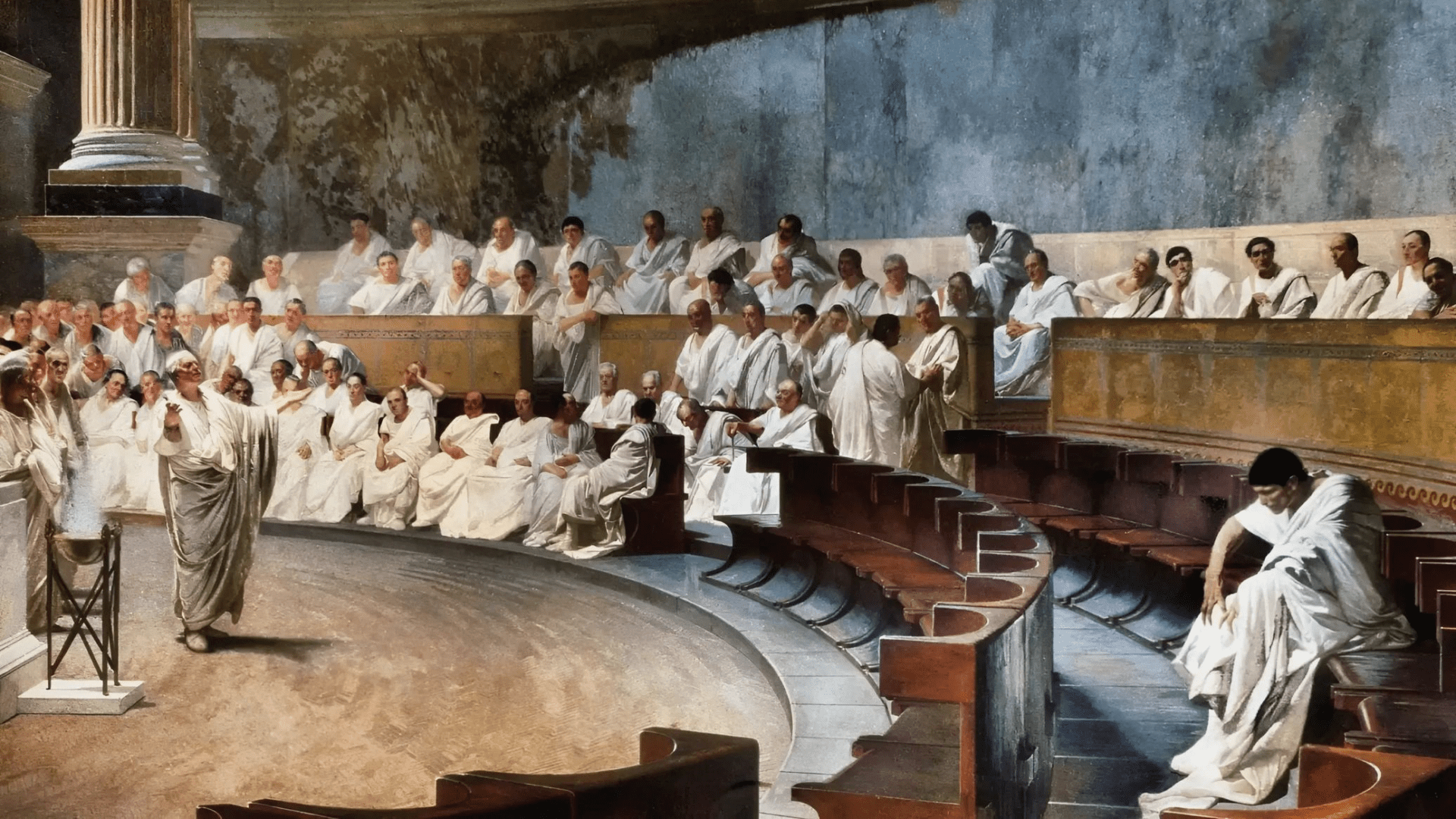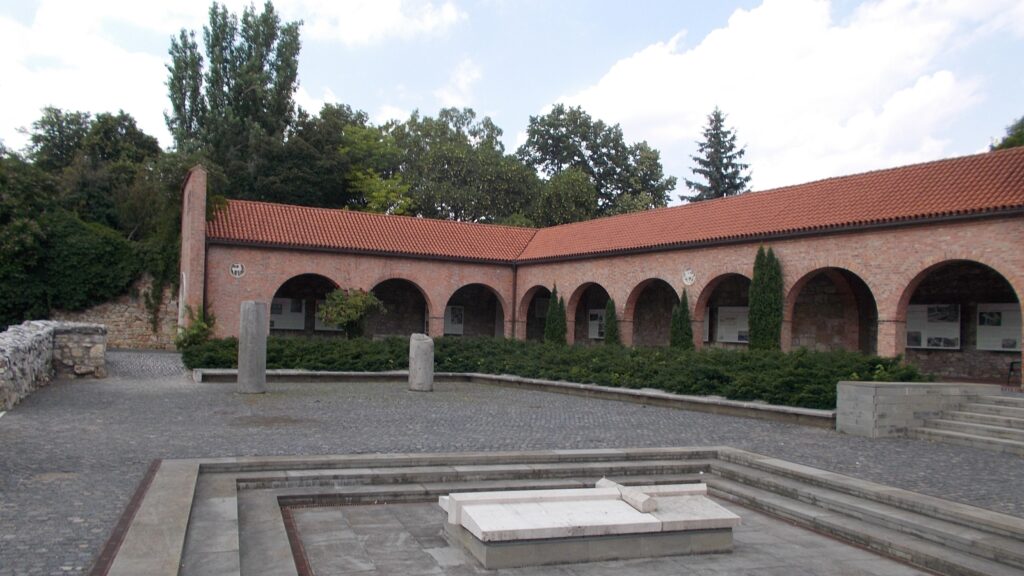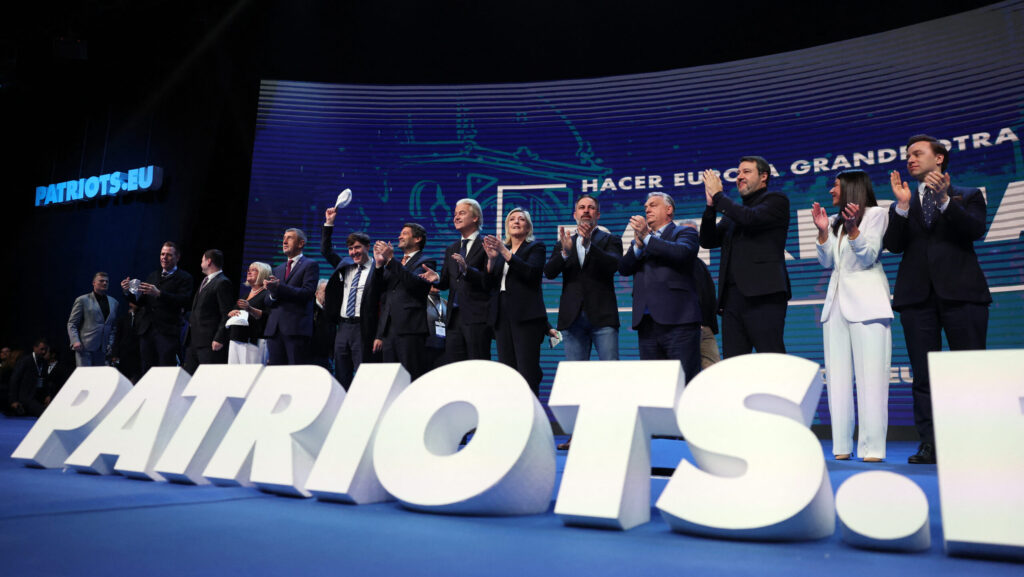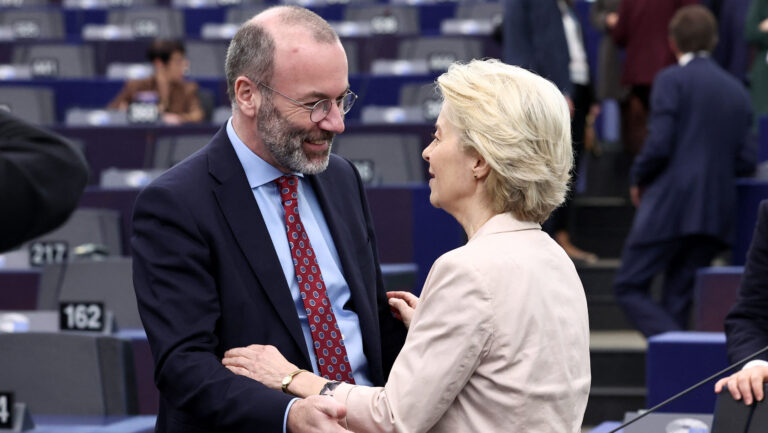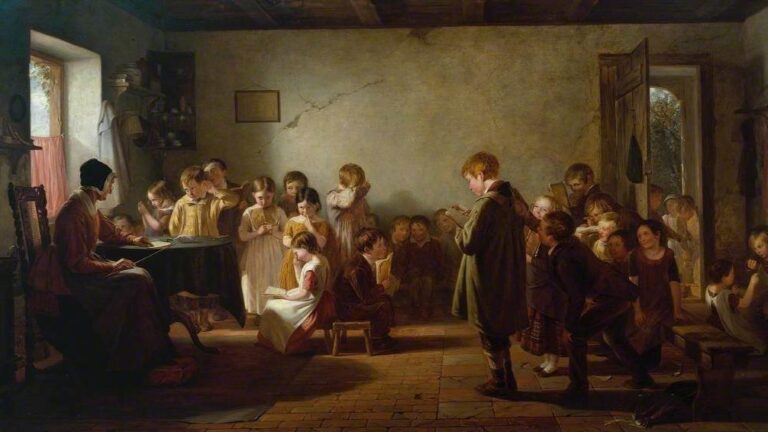The results of the European parliamentary elections vary from country to country, but there is a net shift towards the centre-right and patriotic and national-conservative parties. Many left-wing and liberal journalists, politicians, and academics moan about the monstrous ‘far right’, which allegedly threatens democracy, freedom, the rule of law, and peaceful coexistence in Europe. But no far-right beast is threatening to devour democratic Europe. Such representations, feeding off the fear of nationalism, are even an inversion of reality. People with a healthy pride in their nation do not threaten democracy and European cooperation. In fact, as I will argue, they are their very foundation.
Correspondingly, decrying an alleged ‘far right’ takeover does not serve the defence of a threatened European democracy. On the contrary, it is the immune response of a liberal-technocratic ideology that nestled within Western democracies in the late 20th century and is now fighting to retain its hegemony. This ideology seeks to cast suspicion on the proud solidarity between patriots by portraying it as anti-democratic.
Nation and Democracy
But national consciousness is precisely the origin of modern democracy and is still crucial for organizing democratic solidarity. Of course, nationalism can lead to a dangerous chauvinism which makes people believe that their nation has the right to bully others, but these cases are, fortunately, exceptional excesses. The big picture is that nationalism and modern parliamentary democracy emerged in the 19th century in intimate connection and presuppose each other. Why do they interlock? Because modern democracies give equal civil rights, including voting rights, to the citizens of a nation (and, secondarily, to the citizens of sub-parts of the nation, such as the residents of a municipality).
In modern politics, the nation is the foremost unit of societal solidarity.
For example, it is within the nation that we redistribute most tax money. Of course, individuals and institutions also transfer money to good causes in distant foreign countries, but when you compare those money flows with what is redistributed nationally and locally through social benefits and public services such as education and health care, it becomes clear that national and local identities create a much more substantial basis for solidarity than any compassionate sense of ‘global citizenship’. You are more willing to share with people you identify with. Thus, our democracy and welfare state tacitly lean on a shared national identity—in Hungary, on shared Hungarianness; in my native Netherlands, on Dutchness.
But if you follow Western European public debates, it seems as if nationalism is attacking democracy from the outside. French journalists, plotting the election victory of Le Pen’s Rassemblement National on maps, colour their country brown; the legend indicates that this is the brown of the Extrême droite, the extreme right. In the Netherlands, quasi-intellectuals pretentiously argue whether Geert Wilders is radicaalrechts or extreemrechts, that is, radical or extreme right. In Wiesbaden, Germany, the other day, I heard a father whisper to his son, ‘Those are die Falschen,’ the wrong ones, as they walked past an AfD stall.
Misleading Historiography
Such derogatory labels, which implicitly associate their victims with Nazism, derive their maligned rhetorical force from a misleading image of European history. That image, which became influential in the late 20th century, holds that it was nationalism that primarily drove the Nazis and their evil rampage through Europe. Behold the great dark lesson that liberal technocrats drew from 20th-century history: be anti-nationalist.
But it was not nationalism but the imperialism of a totalitarian state that brought the calamity. If the Nazis had merely been proud Germans, overflowing with solidarity for German workers and stuffing themselves with schnitzels, all would have been fine.
What made the Nazis so horrendous and lethal was that they were totalitarian.
That is, they had a totalizing utopian ideology (in this case, the Nazi doctrine of racial salvation that commanded the Germanic people to rid the world of alleged Jewish domination) and the party-state apparatus for totally organizing society along this ideological programme. Their party-state, which imitated the Leninist party-state of the Soviet Union, placed behind every state organ a shadow hierarchy of the party to ensure total ideological synchronization. It was this totalitarian party-state with its totalitarian ideology that unleashed an unprecedented level of violence on the patchwork of European nations and peoples.
One might even wonder how nationalistic the Nazis actually were. They called themselves the ‘national socialists’, but that was an opportunistic phrase. Just as it is disputed whether they were actual socialists, you can question their claim to nationalism. Hitler’s Mein Kampf used the word ‘Germans’ much less than you would expect; instead, his pet terms were ‘Germanics’ and ‘Aryans’. He sought to erect a mighty empire that would lead all Germanic nations and command the respect of all Aryans. That is, he was a totalitarian imperialist. This was on display, too, in the aesthetic he chose for his new state: not the fine, localizing beauty of German Fachwerkhäuser but the imposing fascist architecture of Albert Speer, which borrowed its grandeur from the Roman Empire.
National patriotism mobilized most of the resistance to Nazi totalitarian imperialism. It was British, American and Canadian patriots who liberated Western Europe. Even Russian soldiers, though then under the yoke of Europe’s other totalitarian empire, mobilized on the basis of nationalism during their war against Nazi Germany. Therefore, in the post-war years in the West, there was a broad realization that totalitarianisms were evil while nationalisms were liberation, which, in 1956, was further underscored by the Hungarian Uprising.
But this realization eventually waned in Western Europe. The European Coal and Steel Community (ECSC), created in 1950 as a supranational organization to prevent Germany from being able to build up for war against France, was still entirely pragmatic. Yet the push toward supranationalism gradually deformed into an anti-national ideology, which denigrated national identities and sought to release supranational, liberal, and technocratic institutions from democratic control, ironically in the name of democracy, rule of law, and peace.
Changing Order
Viewed from that anti-national ideology, the national-conservative and patriotic trend in today’s European politics, fuelled by concerns about mass immigration from Africa and the Islamic world, constitutes an existential threat. The national-conservative trend would render member states morally unreliable, even warlike, capable of committing heinous acts against each other and innocent minorities, just like the Nazis.
Fortunately, as mentioned, this far-fetched fear is based on a misinterpretation of the horrors of the mid-20th century.
These horrors teach us that we should be anti-totalitarian, not anti-national.
You can perfectly well love your country and care for compatriots needing help, all while esteeming other nations and cultures. Patriots from different EU member states can work together just fine, including when running supranational organizations.
Thus, our wonderful EU is not in mortal danger but simply in motion ideologically. Many shall see in this motion only a great danger or imagine freedom and democracy coming to an end, but, in reality, we are experiencing the birth pangs of a new ideological order within democracy, one that in many ways harks back to the more original modern variant of democratic legitimacy and nationhood. Behind the liberal-technocratic ideology now being scraped away lies not a void or a senseless disorder, but a hopeful new age of European rediscovery.
Read more from the author:
Click here to read the original article.

